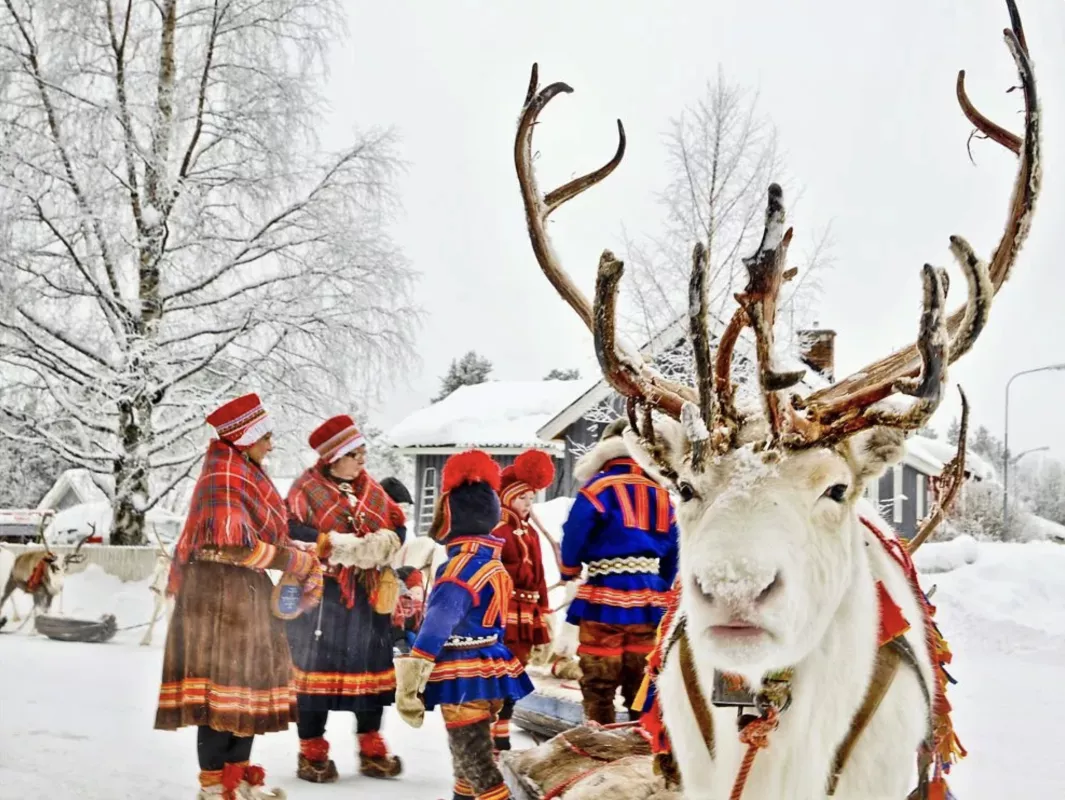Climate change has brought rapid, dramatic changes to the Arctic, affecting ecosystems, communities, and infrastructure in unprecedented ways. Communities in the region, for example, face challenges that threaten their cultures and livelihoods. Food insecurity, shifting weather patterns, coastal erosion, increased shipping traffic, and elevated risks while traveling are just a few concerns related to Arctic warming that they must now manage. However, predicting and preparing for continued uncertainty in the region remains difficult while gaps in scientific observations exist.
The Navigating the New Arctic (NNA) initiative is one of the National Science Foundation’s (NSF) 10 Big Ideas to “drive important aspects of NSF's long-term research agenda, push forward the frontiers of U.S. science and engineering research, and lead to new discoveries and innovations.” NNA aims to mitigate some of these threats associated with Arctic warming. The initiative uses convergence research to fill in scientific knowledge gaps in the region to address climate change-related challenges there. Convergence research is a method of solving complex societal problems by integrating knowledge, methods, and expertise from different disciplines, to drive scientific discovery and innovation.
NNA was launched in 2016 and has built a growing portfolio of research and planning grants at the intersection of the built, social, and natural environments to improve understanding of Arctic change and its local and global effects. Each NNA-funded project is responsible for its own performance, including its core research and broader impacts. To further accelerate research, NSF has established an NNA community office (NNA-CO) through a five-year collaborative agreement to coordinate the activities of funded NNA projects, engage new principal investigators, and promote research, education, and outreach activities. The NNA-CO also provides centralized representation of ongoing NNA activities to the broader scientific community and the public.
About the Navigating the New Arctic Community Office (NNA-CO)
In collaboration with Alaska Pacific University (APU) and the University of Alaska Fairbanks (UAF), the University of Colorado Boulder (CU Boulder) co-hosts the NNA-CO, which supports the goals of NNA through communication, coordination, education, and outreach. The NNA-CO is a distributed office across the three universities.
The Central Office at CU Boulder gains efficiency through affiliations with the co-located Cooperative Institute for Research in Environmental Sciences (CIRES), NSIDC, and the Institute for Arctic and Alpine Research (INSTAAR). APU, a tribally controlled, Alaska Native-serving institution, hosts a Community Extension Office for Arctic communities by facilitating local/regional NNA research partnerships and interfacing NNA research with cultures, knowledge systems, and research needs. An Education and Outreach (E&O) Field Office at UAF facilitates connections among NNA researchers and communities, teachers, and students across Alaska to maintain coordinated, culturally appropriate, and place-based E&O activities.
NSIDC research scientist Matthew Druckenmiller leads the NNA-CO.
Facilitating relationships between researchers and communities
The Community Office aims to forward Arctic research by facilitating stronger bonds between researchers and communities. The NNA-CO works to build awareness, partnerships, opportunities, and resources for collaboration within, between, and beyond the NNA research projects through four strategic objectives: co-production of knowledge, convergence research, culturally responsive education and outreach, and open science. The NNA-CO also works to increase recognition of knowledge and data sovereignty and to promote inclusive and collaborative research design and implementation.
In order to connect communities and researchers as well as the broader NNA community, the NNA-CO distributes a monthly newsletter, which is a resource for sharing timely and relevant information with and between NNA researchers and partners, runs a Community Office Twitter account, and hosts special events and meetings to facilitate networking, education, and discussion between researchers and community members.
